Hilda Gobbi
Birth : 1913-06-06, Budapest, Hungary
Death : 1988-07-13

Baloghné Kiss Lujza 'Lajos'

Vénasszony
It is a tragedy, set among low-lifes on the outskirts of Budapest. Dramatic Exchange describes it as "Widely considered to be the most important Hungarian play of the last 20 years". The odd title of the play refers in the first instance to the chicken heads that an old woman feeds to her cat. However, it can also be taken to refer more broadly to the obtuse behaviour of the main characters in the play. The play is an odd mixture of pathos and nihilism, written against the bleak background of Stalinist totalitarianism from which Hungary was emerging. As with much modern drama, there is no hero in the play. The only noble behaviour that one can find belongs to one of the characters in the past, when he was a child, but he is no longer as he was. The hint that what once existed might be achieved again is the only faint ray of hope in a very bleak view of the human condition.

Galambosné

Old Witch (voice)
Szaffi is a full-length animated feature based on Jokai Mor's books Gypsy Baron (Cyganibaro) and Szaffi. It has adventure, and treasure, and love, and a little black cat, and a war, and picturesque villains - a governor with a pressure release valve in his skull and a fat pig-loving baron, and of course, the good gypsies.

Korcsmárosné
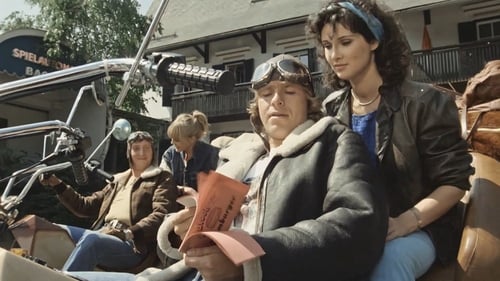
Tommy and Mike, again without a job and without money, are looking for a public toilet at a motor show.

Mrs. Schneider

Teri néni
The elite of political and business life of the country town gather to celebrate the namesday of László in the luxury villa. Everything begins just as usual, but now an incident disturbs the stag party.
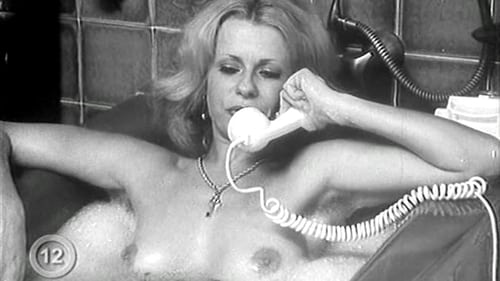
Agatha Christie
Lt. Kojak arrives in Budapest as a guest speaker for the 'International Crime Writers Conference'. Soon after he starts enjoying the pleasures that the city has to offer, he assists his old friends at the police department with a case. The case involves solving the murder of a noted scientist, unaware that a Mafia hit man and his female companion are targeting him.

Pepi néni

Peppi néni

Biri néni (voice)
A young peasant boy stands up to tyranny, aided by his trusting friend - a goose.

The satiric film is a dramatic-ironic picture of the Hungarian intellectuals in the seventies. Ebes, whose art has been awarded for its merits conglomerating folk features with modernity, can hardly believe that from his parents, old friends, and the sons of the people he did not even receive a telegram of congratulation.

Tilda
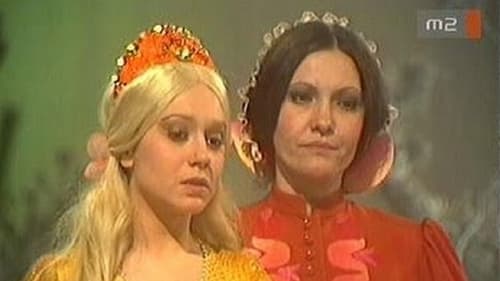
Mirigy

Cseléd
Marci, an impertinent crook buries his drunk parents and chooses to wander instead of becoming an apprentice.

Feature film version of the 1971 series.

Beke néni
Öcsi is going to have a little brother. The little child is sulking, he is deeply hurt because he learns the great secret not from his parents but his best friend, Évike.

The satiric film, interlarded with burlesque elements is the caricature of the petty bourgeois. The hero, Kotlár spends even his holiday with his boss by jogging, in order to learn whether he will be nominated for head of department or not.

The bitter film grotesque focuses on a Socialist Mafioso. Vágó, the enthusiastic young propagandist is put up at Apuka (Daddy) of the outskirts, Dávid. In the hands of Apuka everything becomes money and he skilfully avoids inspection and controls. In order to help his little family, he sells his rabbit husbandry as mutton, he practises usury on and blackmails his tenants, their rooms are operated as cigar stores.
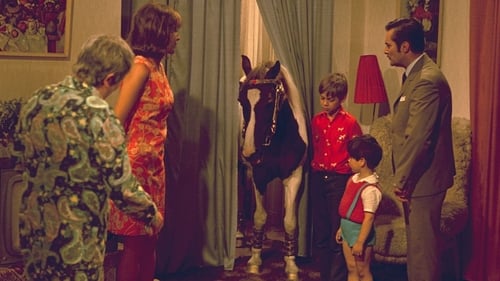
Nagymama
Amazing adventures of a little boy and his friend, the great wizard Chili Chala.

Özvegy Fábiánné
The 16th century Kecskemét troubled by both the Kurutses and the Labancs would like a Bey from the Buda pasha to defend them in exchange for four beautiful girls, but only gets a caftan. It was a good deal, however. All Muslims fall on their knees when they see the magic caftan and fulfil its owner's wish.

Drapp Tamás, metro-driver inherits an American salami-factory worth a hundred thousand dollars from an unknown relative abroad.

Mimóza

Baloghné
This romantic and grandiose historical film depicts the era of the constant incursions and heroic battles fought by the defenders of the castle of Eger, led by captain István Dobó, against the heavy odds of superior numbers through the lives and love of Bornemissza Gergely and Cecey Éva. Gergely is inaugurated as a fighter already at the age of 7, when he escapes the captivity of the half-eyed Turk, Jumurdzsak, with Vica and the war-booty. In thirty years' time he becomes the first assistant of captain Dobó and the brain of the castle in the defence of Eger.

Tolmácsnő
A comedy about two twin brothers - Sándor, who emigrated and became a rich man, and Zoltán, who stayed in Hungary and lives the life of an average working-class man. When Sándor visits his twin brother, they are constantly mistaken for each other, and when Zoltán sees how differently people treat Sándor because of his money and his foreign citizenship, he begins to like being mistaken for him - until he realizes that this means he will lose his girlfriend Szöszi...

The story takes place during World War II and presents the illegal movement from inside. Some tough guys from the square have been angry with Albert Zoli, a boxer since he started living a decent life, passed the final examination at high-school, and entered a job as a bank clerk. About his illegal activity, however, they do not even have the slightest idea. With the help of Zsizsi, a young actress, and Diogenes, an extravagant tramp, he persuades the guys to join the movement. They distribute anti-Nazi handbills and paint pacifist slogans onto the walls of houses.

Mrs. Piper

Attila's mother
Mythomaniac teenager Anna tries to impress her schoolmates so she impersonates a journalist to meet her dancer crush who she said to be in a relationship with.

On the novel by Mór Jókai. The first half of the XVIII century. Several decades of life of a noble family Karpati.

Amazontermészetű Márta
13 March 1965 (Hungary)
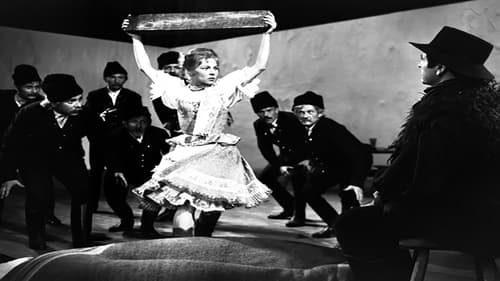
A Képmutogató felesége
Az Életbe táncoltatott leány is a 1964 Hungarian film directed by Tamás Banovich. It was entered into the 1965 Cannes Film Festival where it won a Technical Prize

This film comedy takes place in the good old times of the Austro-Hungarian Monarchy at the turn of the century. Bányai, an impecunious clerk suddenly finds himself to be able to make perfect imitations of ornaments on the bank-notes. Being spurred by his incessantly shrewish mother-in-law, he finds a solution to his family's financial problems overnight, but an ambitious detective becomes suspicious of him.

Brazovicsné

A young woman on board of a bus notices that her watch has been stolen. The ticket collector keeps everybody on board, and upon the advice of a traffic police, they drive directly to the nearest police station.

A new teacher arrives at the secondary grammar school. The girls are all crazy for the handsome, blonde young man, except for the most excellent pupil, Balázs Ági. Yet Pali starts paying his attentions to no one else but her.

Mihály Zágon has been struggling with his conservative mother-in-law for a long time. Now, that his wife is pregnant, the old woman wants Piroska to stay in bed. Mihály is elected to be the president of the co-operative, but nobody is happy about this back home. His wife often pretends to be ill to keep him by her side.

Tóth Irma, matematikatanár
Most of her colleagues take Mária, the new teacher to be a communist party-worker, only Irma and the drawing teacher Zoli treat her kindly. Mária starts working with great enthusiasm, and her class learns to love her in a short time.

Anya

October, 1956. Colonel lieutenant Szabó sends a platoon with the mission of calming the people demonstrating in the town. The platoon is lined up under the command of Lieutenant Csendes and the soldiers aim at the demonstrators. Szusza Kis changes sides, and Csendes is unable to shoot at his childhood mate. They withdraw.

Volone
The "sleepless years" in this propaganda piece by director Felix Marlassy occur on Csepel Island, an island south of Budapest that is home to an armaments factory. The factory workers are shown being exploited by imperialists, capitalists gone berserk, and fascists, more or less in that exact chronological sequence. The heavy-handed approach does much to undercut the belief that when socialism finally takes over, the lives of the workers are brought up to a human level. In this instance, audiences might prefer a more nuanced and subtle statement, no matter what the message.

Etel
The young maid, Anna starts to work for the noble Vizy family. Mrs Vizy is proud of the hard-working servant but doesnt treat her well. Her nephew seduces Anna with sweet words, but when leaves her as soon as she gets pregnant. The humiliations of Anna finally lead to a tragic ending.

Nagymama
Georgina comes to see her sister Gladys in Paris in order to dissuade her from becoming attached to Rigo, a gypsy conductor. When she meets the latter, it is love at first sight. Louis, Georgina’s husband, does not accept this situation.

Özvegy
Cabinet crisis threatens in Futbólia, due to a series of lost matches. The head of state charges admiral Duca with the task, as a last chance, to get hold of the football star of the Hungarian team presently playing in Switzerland.
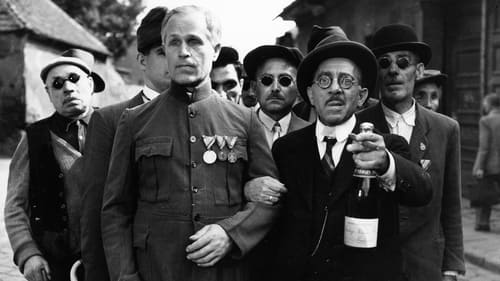
Vogelmayerné
A school teacher becomes a momentary hero after having rescued a stuffed-bird from a school incident.

In the story which takes place at the beginning of the century Károly Bauer pupil experiences a series of everyday failures during twenty four hours in the family, on the street and at school.

Mama Sari
Imre, secretary of the illegal communist party arrives in Budapest secretly in 1942, in order to start the newspaper of the party in the fight against war. Not even his own mother can see him.

The hero of the story taking place at the end of the twenties is the modest civil servant, doctor Kopjáss who is suddenly appointed to be the chief attorney of Zsarátnok city. He realises slowly that his immaculate name was needed as a cover for the corrupt loan transactions handled by the lords of the city.
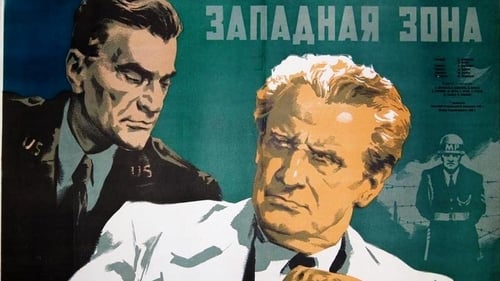
Lotte

Szimácsiné
Különös házasság is a 1951 Hungarian drama film directed by Márton Keleti. It was entered into the 1951 Cannes Film Festival.
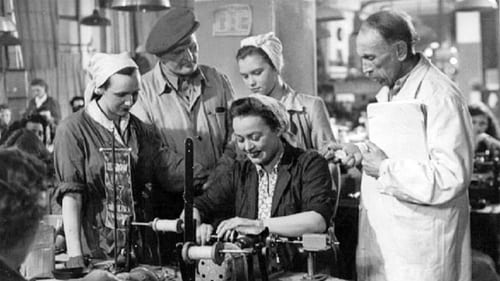
Mommy

Kis mama
Kis Katalin and Varga Jóska are getting married. During their honeymoon they are preparing plans for the future. Katalin, however, seems to lag behind both in her studies and the work competition, becoming a couch potato version of a wife. Jóska, instead of trying to help, does nothing else than his work.

Director: Imre Jeney

Nagymama
Baracs Pista, engineer at the construction site of a railway line near the Korláthy estate, falls in love with Rolla, a countess disguised as a peasant girl. The count is giving a party as he wants the railway line to go across his lands.

Malvin

Kalaposné
When his new wife from a peasant background is not accepted by his colleagues, a University Professor resigns his post and returns home to his rural village. After receiving popular support, he is returned to his position by the Minister of Education.

How did a beautiful American divorcee get into the bed of her best friend's fiancé right after returning to Budapest?

Bolond



































